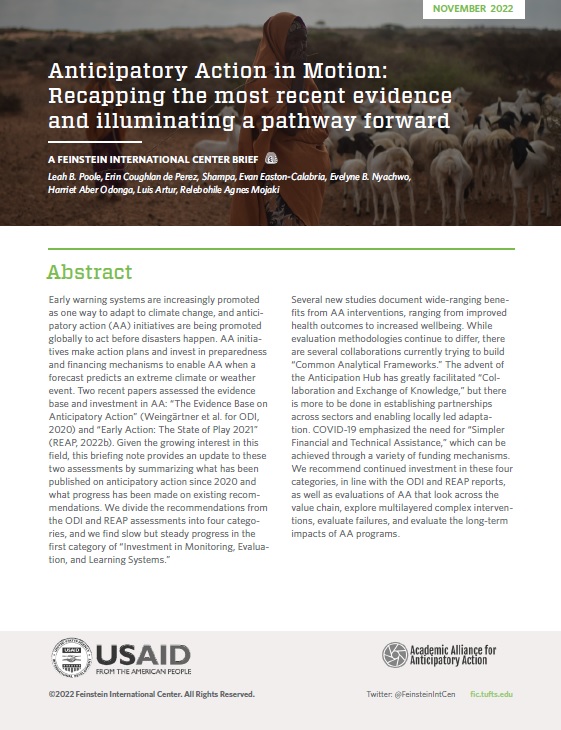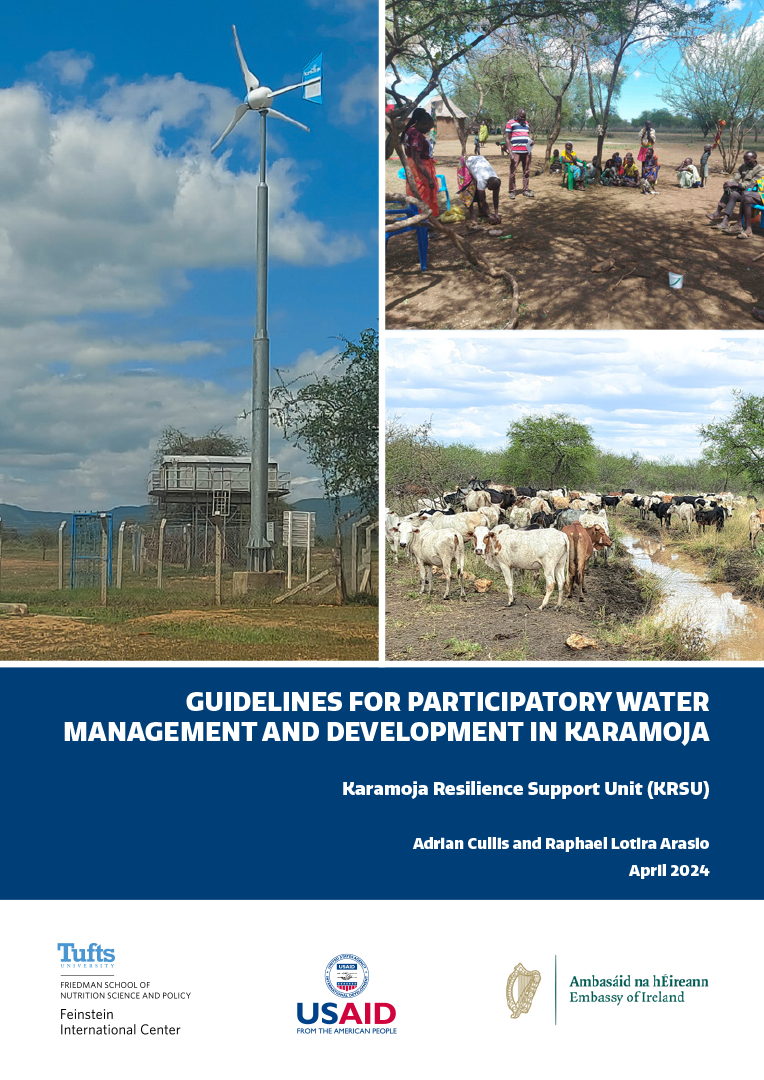Early warning systems are increasingly promoted as one way to adapt to climate change, and anticipatory action (AA) initiatives are being promoted globally to act before disasters happen. AA initiatives make action plans and invest in preparedness and financing mechanisms to enable AA when a forecast predicts an extreme climate or weather event. Two recent papers assessed the evidence base and investment in AA: “The Evidence Base on Anticipatory Action” (Weingärtner et al. for ODI, 2020) and “Early Action: The State of Play 2021” (REAP, 2022).
Given the growing interest in this field, this briefing note provides an update to these two assessments by summarizing what has been published on AA since 2020 and what progress has been made on existing recommendations. We divide the recommendations from the ODI and REAP reports into four categories:
- Investment in Monitoring, Evaluation, and Learning Systems
- Common Analytical Frameworks
- Collaboration and Exchange of Knowledge
- Simpler Financial and Technical Assistance
We find slow but steady progress in the first category of “Investment in Monitoring, Evaluation, and Learning Systems.” Several new studies document wide-ranging benefits from AA interventions, ranging from improved health outcomes to increased wellbeing. While evaluation methodologies continue to differ, there are several collaborations currently trying to build “Common Analytical Frameworks.” The advent of the Anticipation Hub has greatly facilitated “Collaboration and Exchange of Knowledge,” but there is more to be done in establishing partnerships across sectors and enabling locally led adaptation. COVID-19 emphasized the need for “Simpler Financial and Technical Assistance,” which can be achieved through a variety of funding mechanisms.
We recommend continued investment in these four categories, in line with the ODI and REAP reports, as well as evaluations of AA that look across the value chain, explore multilayered complex interventions, evaluate failures, and evaluate the long-term impacts of AA programs.
This brief was written as part of the work of the Academic Alliance on Anticipatory Action (4As), a consortium of universities around the world seeking to inform and enhance anticipatory action. The 4As Consortium is funded by USAID and led by Tufts University in partnership with Bangladesh University of Engineering and Technology, Eduardo Mondlane University in Mozambique. Makerere University in Uganda, the National University of Lesotho, University of Namibia, and University of the Philippines.







